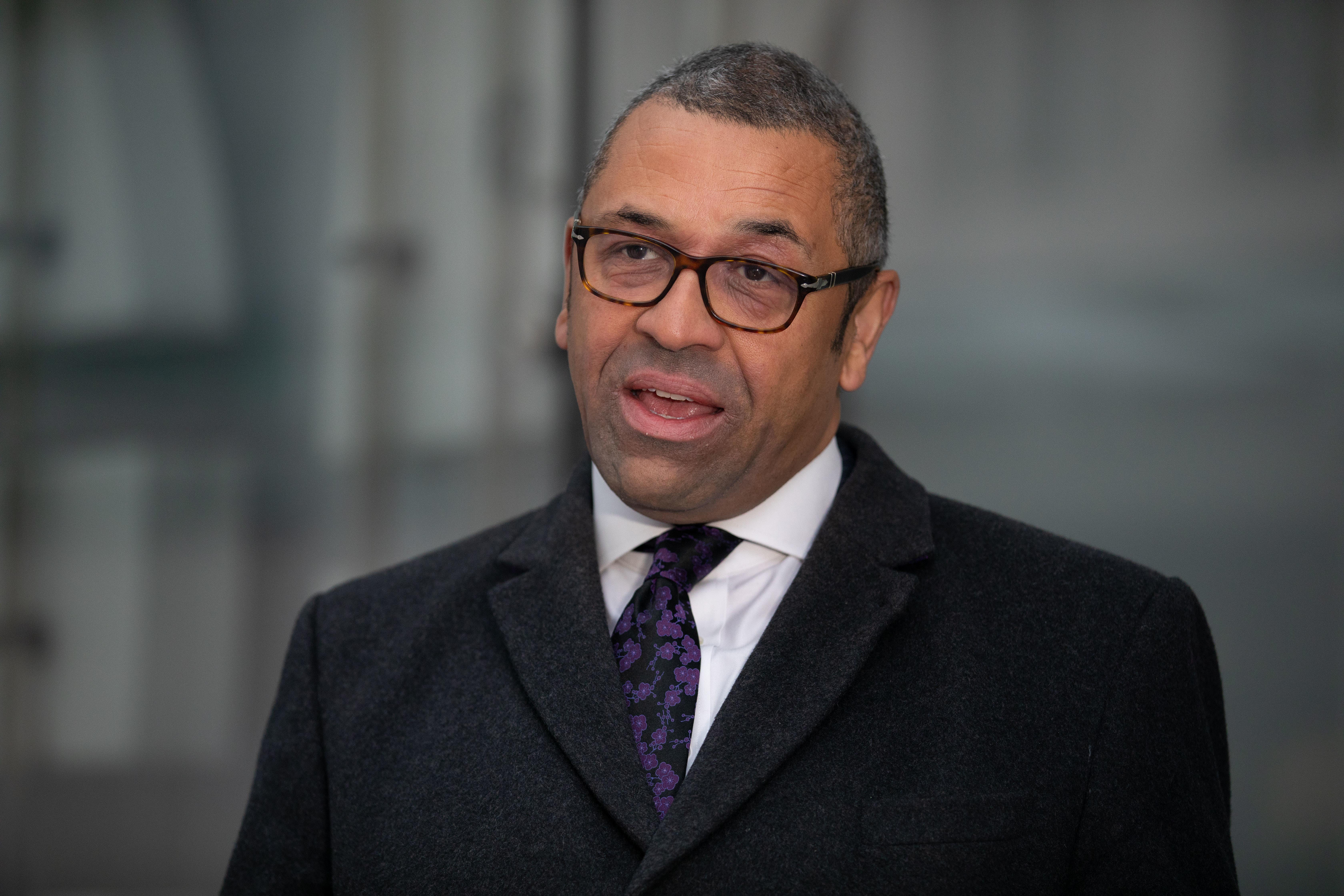China can be a ‘partner for good’, says Cleverly ahead of major speech
The Foreign Secretary is to give a speech on Monday about the need for the UK to align with a crop of increasingly influential countries.

James Cleverly has called China a potential “partner for good” as he prepares to give a major speech on the future of UK foreign policy.
The Foreign Secretary was pressed on the exact nature of the UK’s relationship with China, Saudi Arabia and other countries ahead of his speech on Monday, in which he is expected to argue the UK must align with a crop of increasingly influential countries across Latin America, Asia and Africa.
The speech itself is not expected to focus heavily on China but Mr Cleverly was on Sunday pressed about the UK’s position in relation to the powerful Asian state.
Only two weeks ago Rishi Sunak promised to set a new direction in UK foreign policy, telling an audience in London that while the “golden era” of relations with China was over, his administration would follow an approach of “robust pragmatism” in standing up to global competitors.
It marked a significant dilution of the tough rhetoric against China that Mr Sunak deployed during the summer’s Tory leadership contest, when he branded the country the “biggest-long term threat to Britain”.
Mr Cleverly did not repeat that language, but used an appearance on the BBC’s Sunday with Laura Kuenssberg programme to call China “incredibly challenging” on the global stage while also a potentially “important partner for good” in areas like climate change.
He said China’s behaviour was “unacceptable” on some issues, referencing the treatment of Uyghurs, but warned: “We need to think long term about defending the principles and the institutions that we know have kept us safe for decades.
“China has threatened a number of those foundation stones that we feel are important and we will work with our old friends and new friends to make sure that we protect things that we need to protect, but we will of course still look for opportunities to influence China to move in a better direction, and also work with China to make improvements where we can.”
In his speech, Mr Cleverly is expected to say: “In the coming decades, an ever-greater share of the world economy – and therefore of world power – will be in the hands of nations in Asia, Africa and Latin America.
“The UK offer will be tailored to their needs and UK strengths, spanning trade, investment, development, defence, technology and climate change.
“This will be backed up with a reliable source of infrastructure investment. So, I’m determined that we will make investments of faith in the countries that will shape the world’s future.”
On Sky News, Mr Cleverly was pressed on whether this will mean looking beyond the human rights record of some countries.
Asked in particular about the UK’s relationship with Saudi Arabia, Mr Cleverly said he had spoken to the Middle Eastern state’s leaders about its use of the death penalty.
He said: “Saudi, of course, is a not just economically but culturally, religiously, an incredibly important, influential country in the Middle East and further.
“It’s incredibly important that we maintain an ongoing bilateral relationship with Saudi.
“Some of that includes trade, but also in terms of security, counter-terrorism work, and when we have a relationship with the country, of course, we highlight where there are differences, and on this issue we have very, very deep differences.
“We also seek to find the areas where we can exert influence and I have, in fact, been supportive of the reform programme that Saudi is putting forward.”
It comes as Mr Sunak spoke to his New Zealand counterpart Jacinda Ardern on Sunday.
A Downing Street spokeswoman said that the two leaders “discussed shared challenges in the Indo Pacific, and reflected on the importance of economic stability and resilience to growing strategic competition”.
The leaders “also shared their condemnation of Iran’s ongoing support to Russia’s illegal invasion of Ukraine, including through the provision of drones”.
Bookmark popover
Removed from bookmarks